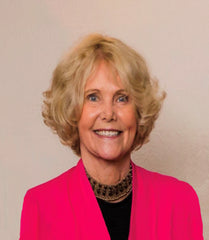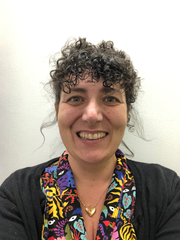To earn this credential, please select the required number of courses (see above) from the following list:
Advocacy, Allyship & Antiracism: Empowering Change For Inclusion & Equity
Overview
Higher education requires that we all be part of creating inclusive, equitable campuses where faculty, staff, and students find a sense of belonging. However, though diversity, equity, and inclusion are valued at most institutions, training to equip our college community members with skills and strategies to develop policies and initiatives to further DEI is only sometimes prioritized. Faculty, staff, and students need a greater understanding of how they can be influential allies, advocates, and change agents who can cultivate antiracist environments.
Join the presenter who will provide insights on skills, strategies and practical examples of everyday actions that further diversity, equity, and inclusion within your sphere of influence.
- Develop a foundational knowledge of allyship, advocacy, and antiracism
- Explore strategies to change and enhance campus policies through the lens of allyship, advocacy, and antiracism.
- Explore personal, cultural, and organizational barriers to institutional change for great greater DEI.

Naomi Sigg
Ensuring Diversity, Equity & Inclusion In The Online Learning Environment
Overview
The COVID-19 pandemic forced many universities to develop plans to shift to an online learning environment, and since 2020, we have seen a continued shift toward virtual learning opportunities. As most institutions commit to diversity, equity, and inclusion values in their vision and mission statements, ensuring equity and inclusion for all students in the online learning environment is necessary to create integrity between values and actions.
In this presentation, participants will think intentionally about strategies they can utilize to ensure equity and inclusion, such as accessibility considerations, addressing microaggressions, and the importance of asynchronous opportunities. Participants will also learn skills to prevent and address exclusionary moments in the online classroom.
- Analyze current classroom structure
- Identify strategies to address microaggressions and other exclusionary behaviors
- Apply best practices to create greater inclusion of all students in the online learning environment
- Identify campus resources to assist with creating greater inclusion in the online classroom

Naomi Sigg
DEI & International Students: Strategies For Attracting, Retaining & Growing This Student Population
Overview
International students face unique challenges when they come to America to study. Some of these challenges are basic and obvious, such as the need to improve their English comprehension and learn to navigate a new cultural milieu. Others may be less obvious and more subtle. International students often feel lonely and isolated. They may find American students’ values, such as individualism, alien to their own. They may tend to gravitate to other students from their own nation or region to the exclusion of other American and international students.
Breaking down these barriers requires a menu of programs and procedures. These can include orientation courses, year-long transition courses, leadership retreats, mentoring programs, campus social and cultural events, and field trips. In addition, international students need to be sensitized and acclimatized to diversity within their own ranks and given effective strategies for comprehending and navigating their new American home away from home.
- Understand the challenges facing international students in the U.S.
- Explore practical, pragmatic strategies and tactics for meeting international students’ sociocultural and psychological needs
- Investigate how a diverse international student body can enhance the institution’s DEI program to the benefit of both international and American students on our campuses

James Castagnera
Diversity, Equity & Inclusion In Academic Advising: Challenges, Opportunities & Strategies
Overview
“As institutions increase their attempts to diversify and expand the undergraduate college student population, there is a need to increase the academic resources and support services for their students, particularly for students of Color. Because of this, academic advisors play an integral role in the academic success and degree completion of their students. The ways in which they advise and perceive their students can impact the way their students navigate and make sense of the college environment. This relationship between faculty advisor and student is just one aspect of the academic advising experience. In addition to establishing a relationship with a faculty advisor, students of Color must also learn how their ethnic and racial identities influence these interactions and their larger college experiences.”- University of Colorado, Boulder
Many institutions have made significant progress in their efforts to recruit, retain, graduate and place students from diverse backgrounds in a position for personal and professional success after graduation. However, the truth is that many students of color face immense challenges in the academic world — many of their peers who do not identify similarly cannot understand or appreciate. Academic advisors can play a significant role in helping these students be more successful and making others more aware of the challenges they face as they help them reach their full potential. The active promotion of diversity, equity and inclusion initiatives is essential to the ultimate success of all students. Academic advisors can, and should, take a leadership role in making sure the campus environment is supportive of all students at the institution.
This webinar will provide evidence-based best practices that can be used to help academic advisors be more mindful of their inherent responsibility to integrate and reinforce the basic tenets of diversity, equity, and inclusion into the advising process at all levels. A huge part of this process involves mentoring and coaching students, not only in their respective disciplines, and educating others about the social mores and political minefields than can characterize higher education. Concrete strategies for embedding DEI concepts into the academic advising process will be presented, together with case studies, demonstrating how to maximize their effectiveness.
- Review the current situation with respect to students of color on the contemporary college campus.
- Explore the obstacles that impede students of color from reaching their full potential at many higher education institutions.
- Investigate what diversity, equity, and inclusion mean personally to all students.
- Consider the role of institutional culture in the recruitment and retention of all students — especially students of color.
- Learn how to conduct a diversity, equity and inclusion needs analysis designed to reveal the strengths and weaknesses at their particular institution.
- Discuss how to translate the findings of the DEI needs analysis into a concrete action plan.
- Investigate the role of academic advisors in developing and implementing strategies designed to enhance DEI throughout the campus community
- Examine evidence-based best practices in advising students of color.
- Critique real-life examples and case studies of effective and ineffective ways of integrating DEI into the academic advising process.
- Learn how to assess and anticipate the evolving DEI needs of the campus community.

Dr. Aaron W. Hughey

Monica Galloway Burke, Ph.D.
Culturally Responsive Teaching Practices: How To Create An Inclusive Climate
Overview
Fostering student learning and engagement can be challenging in any educational environment, and even more challenging when that environment welcomes students of diverse backgrounds (e.g., students of varied demographic, socio-economic, cultural, linguistic, age, and ability characteristics). This webinar will discuss the most effective principles of culturally responsive teaching based on the pillars of inclusive course climate and teaching, culturally relevant curriculum, assessment, classroom practices, and diversity and inclusion in the classroom by utilizing students’ unique backgrounds and contributions. Specific examples, models, and templates for culturally relevant curriculum and assessment will be presented.
- Understand the main principles for creating a supportive and inclusive classroom climate
- Learn how to assess students’ characteristics, learning preferences, and unique contributions
- Understand the principles of recognizing and discontinuing non-inclusive classroom practices
- Analyze their teaching practices and identify opportunities for application of culturally responsive and inclusive teaching strategies

Masha Krsmanovic
Strategies To Foster LGBTQ+ Inclusion In The College Classroom
Overview
In this webinar, educators will learn specific strategies to foster greater LGBTQ+ inclusion in the classroom setting. Using examples from both educational research and her own teaching experience, the presenter will share strategies to increase such inclusion efforts in multiple areas of the classroom experience.
Specifically, attendees will learn strategies to create a more culturally competent and supportive college classroom in the following areas:
- Syllabus design
- Management of classroom discussions
- Creation of online learning management systems (i.e. Blackboard, Moodle, Desire2Learn, Carmen, etc.) among others
Finally, this webinar will conclude by offering practical advice on how to ensure all students are invested in the process of fostering a more inclusive classroom environment for LGBTQ+ students. Specific pieces of information for managing these conversations will also be provided.
Given the nature of this webinar, attendees are expected to have at least one of the following:
- Some level of experience supporting LGBTQ+ college students
- Working knowledge of the LGBTQ+ community and its relevant terminology
- Identify areas where LGBTQ+ inclusion strategies can be implemented in the college classroom
- Discuss specific strategies to foster greater inclusion for LGBTQ+ students in areas like pre-course planning and classroom management
- Provide practical advice about how to ensure all students are better invested in the process of LGBTQ+ inclusion in classroom settings

Dorian Rhea Debussy, Ph.D.
Reinventing DEI In Higher Education: Strategies For Funding, Resilience & Growth
Overview
As the landscape of higher education rapidly evolves, diversity, equity, and inclusion (DEI) offices and divisions face unprecedented challenges with resources and finances. This interactive webinar explores reactive and innovative approaches to ensure the uninterrupted advancement of DEI initiatives in the face of budgetary shifts and reimagined priorities.
Through collaboration, attendees will gain insights into forging strategic partnerships across campus departments, fostering shared responsibility, and tapping into diverse networks to amplify available resources. The session will also spotlight innovative fundraising techniques, philanthropic endeavors, and grant-seeking endeavors that universities have used to bolster their DEI agendas.
Moreover, the webinar will highlight how aligning DEI missions and visions with institutional goals can secure essential support and foster a cohesive university community that drives meaningful change through unified efforts. This session will empower your institution's commitment to diversity, equity, and inclusion by exploring innovative and proactive ways to overcome financial constraints and resource shortages.
- Assess current resource and financial needs of your DEI office or division
- Identify alignment with DEI efforts and university vision, mission, and values
- Investigate funding opportunities with internal and external groups such as grants, non-profit organizations, and corporations
- Explore collaboration between institutional entities to support DEI efforts
- Understand unique institutional and cultural barriers to DEI funding and support and opportunities to surmount those challenges

Naomi Sigg
Creating An Inclusive Workplace: How To Mitigate Unconscious Bias From Your Recruitment Practices
Overview
Unconscious biases play a critical and problematic role in decision-making, especially in hiring. Research shows these biases can make hiring practices impartial and unfair, often favoring certain individuals or groups and undermining diversity and inclusion efforts. This favoritism, whether intentional or not, can result in a lack of diversity within educational institutions and hinder the creation of an inclusive workplace environment.
Despite our best intentions, unconscious biases can still seep into recruitment practices, impacting decisions and limiting the pool of qualified candidates. Identifying and eliminating these biases is crucial to fostering diversity and ensuring fairness in the hiring process.
Join our webinar to learn practical strategies educational institutions can implement to mitigate unconscious bias in recruiting. Discover actionable steps to enhance diversity and inclusion and ensure the selection of the best candidate, regardless of their background.
- Understand the importance of training to recognize and address unconscious bias.
- Learn how to create bias-free job descriptions and interview questions.
- Develop a fair and equitable system for evaluating and differentiating candidates.
- Explore strategies for blind resume reviews and teaching demonstrations.
- Gain insights on fostering open dialogue and requesting feedback from candidates.

Maria Poindexter, Ph.D.
Strategic Faculty Hiring: Actionable Steps For Each Stage Of The Recruitment Process
Overview
Attracting and retaining top talent is at the heart of our faculty recruitment efforts. It starts with a robust and well-defined strategy to bring in new faculty members who will infuse innovative ideas and present academic challenges that inspire students. Given the constant changes in higher education, it's more than finding candidates with the right credentials and experience. We aim to identify those who can contribute to our institution's goals and enrich our community with diverse perspectives. To achieve this, we cast our net wide, seeking a varied and dynamic pool of candidates.
This presentation will guide you through three crucial phases:
- Before Recruitment
- During Recruitment
- After Recruitment
Join us to discover valuable insights and actionable steps for each stage of the recruitment process!
- Designing a clear and impactful job description
- Creating a diverse search committee
- Developing a search plan
- Utilizing multiple channels to communicate the opportunity
- Developing a structured interview process
- Evaluating and selecting candidates
- Crafting a solid onboarding process
- Analyzing data to refine the overall search plan

Maria Poindexter, Ph.D.
Inclusive Syllabus Design: Embracing Diversity & Empowering Every Student
Overview
Join us in exploring the art of designing a syllabus that caters to students with diverse abilities, learning styles, and disabilities. Research has shown that our classrooms are filled with students who bring unique strengths, backgrounds, and interests. To truly engage and support every learner, it's crucial to consider this diversity, including varying ability levels. That's where the Universal Design (UD) Framework comes in.
Imagine a syllabus that effortlessly meets the needs of all students, without the need for adaptation or specialized design. The UD Framework empowers instructors to create educational materials that are accessible to everyone, regardless of their abilities, disabilities, ages, reading levels, learning styles, native languages, cultures, or gender identities. By implementing UD practices, we can minimize the need for special accommodations and ensure that every student can thrive, whether they disclose their disabilities or not.
In this captivating session, you will discover how to harness the UD Framework's power to design a genuinely inclusive syllabus. We'll delve into practical techniques for formatting your syllabus to accommodate students with visual impairments, learning disabilities, and other challenges. We'll explore how text-to-speech software can enhance reading speed and comprehension for neurodivergent students and English language learners. We'll also unveil how screen readers can provide vital support for blind students, offering navigation assistance and a seamless reading experience.
But that's not all! Our presenter will go beyond syllabus design, demonstrating how the UD Framework can transform your entire teaching practice. You'll witness the wider potential of UD, discovering how it can shape the accessible and inclusive design of all course materials, campus services, information technology, and physical spaces. By embracing UD, you'll become a champion of diversity, equity, and inclusion (DEI) initiatives, creating a learning environment where every student can thrive.
- Define the practice of universal design (UD) and describe components of the Universal Design Framework
- Share several principles that underpin the UD Framework
- Apply the UD Framework to create a syllabus that is accessible and inclusive of students with a wide range of abilities
- Describe examples of how UD can be applied to other aspects of education, including materials and activities in a course, student services, information technology, and physical spaces

Sheryl Burgstahler
Fostering Transfer Success Through Diversity, Equity, Inclusion & Belonging
Overview
Join our interactive session to explore the vital role of Diversity, Equity, Inclusion, and Belonging (DEIB) principles in ensuring successful transfer processes across various domains. By understanding the impact of DEIB on transfer success, you will learn how to integrate these principles into your practices to create inclusive and supportive environments. Gain a comprehensive understanding of how DEIB principles influence transfer success, discover actionable strategies to implement DEIB in transfer processes, and participate in engaging discussions to share experiences and insights with your peers, fostering a sense of community and collaboration. Learn how to apply DEIB principles in real-world scenarios to foster a culture of inclusivity and belonging. This session is ideal for educators, administrators, and support staff involved in transfer processes committed to fostering an inclusive and equitable environment. Don’t miss this opportunity to enhance your understanding and application of DEIB principles in transfer processes. Register now to ensure equitable success for all students.
- Examine the Impact of DEIB on Transfer Success: Explore how embracing DEIB principles can create a more inclusive environment and improve transfer success rates.
- Understand the Role of DEIB in Fostering Inclusive Environments: Gain insights into the significance of DEIB in creating supportive environments that encourage a sense of belonging and equal opportunity in the transfer process.
- Develop Practical Strategies for Implementing DEIB: Learn practical strategies to embed DEIB principles into transfer processes, creating inclusive, accessible, and equitable pathways for all.

Keisha Jones
Rethinking Hiring: Essential DEI Strategies For Inclusive Recruitment & Onboarding
Overview
Join us for an engaging and informative webinar on inclusive recruitment and onboarding, where we will delve into the critical aspects of addressing personal biases and developing other essential skills for creating an inclusive and equitable process. In today's rapidly evolving world, organizations recognize the importance of fostering diverse working communities and ensuring equal opportunities for all candidates. This webinar aims to equip recruiters, HR professionals, and hiring managers with the knowledge and tools to implement inclusive practices that attract diverse talent and create a welcoming environment for all employees.
Throughout the session, we will explore the various biases that can unknowingly influence recruitment decisions and hinder diversity efforts. Participants will gain a deep understanding of unconscious biases, such as affinity bias, confirmation bias, and stereotyping, and learn practical strategies to identify and mitigate these biases. By recognizing and challenging personal biases, attendees will be empowered to make fair and objective hiring decisions based on merit and qualifications.
In addition to addressing biases, this webinar will focus on building a comprehensive set of skills necessary for inclusive recruitment and onboarding. Attendees will learn practical strategies for crafting inclusive job descriptions, sourcing diverse candidates, and conducting inclusive interviews that promote equal opportunities for all applicants. We will also explore the importance of allyship and its role in creating an inclusive workplace culture.
- Examine the implicit biases that we bring to the recruitment process
- Identify how missteps in the recruitment process can cause inequitable treatment of candidates
- Discover strategies and tools that can enhance your recruitment process
- Explore opportunities to develop a diverse applicant pool
- Construct behavior-based questions to include in interviews
- Develop an onboarding plan to incorporate diversity, equity, inclusion, and belonging

Naomi Sigg
Recruiting Inclusive Orientation Leaders: Building A Diverse & Dynamic Leadership Team
Overview
In this session of the Administrative Leadership Microcredential, participants will delve into the intricacies of building a diverse and dynamic student leadership team. The focus will be on understanding student leaders' roles within the community, often described as the "hats" they wear. We'll explore the Human Centered Design process, emphasizing its importance in understanding students' needs, desires, and challenges as they transition from pre-enrollment to on-campus life. Participants will learn about the comprehensive process of recruiting orientation leaders, from effective advertising strategies to crafting insightful application questions and the significance of peer-to-peer recruitment.
The training will highlight orientation leaders' pivotal role in shaping a positive transition experience for new students, fostering a sense of belonging, and building relationships that enhance the overall student experience. The session aims to equip administrators with tools for training that emphasize inclusivity, belonging, and career preparation while understanding the motivation behind student leadership.
- Equip participants to build a diverse student leadership team, understanding their community roles.
- Enhance understanding of Human Centered Design for capturing student needs from pre-enrollment to campus life.
- Provide strategies for effective recruitment, from advertising techniques to peer-to-peer engagement.
- Highlight orientation leaders' pivotal role in positive student transitions and fostering belonging.
- Offer administrators a training framework emphasizing inclusivity, belonging, and career preparation.

Celeste Guarneri














